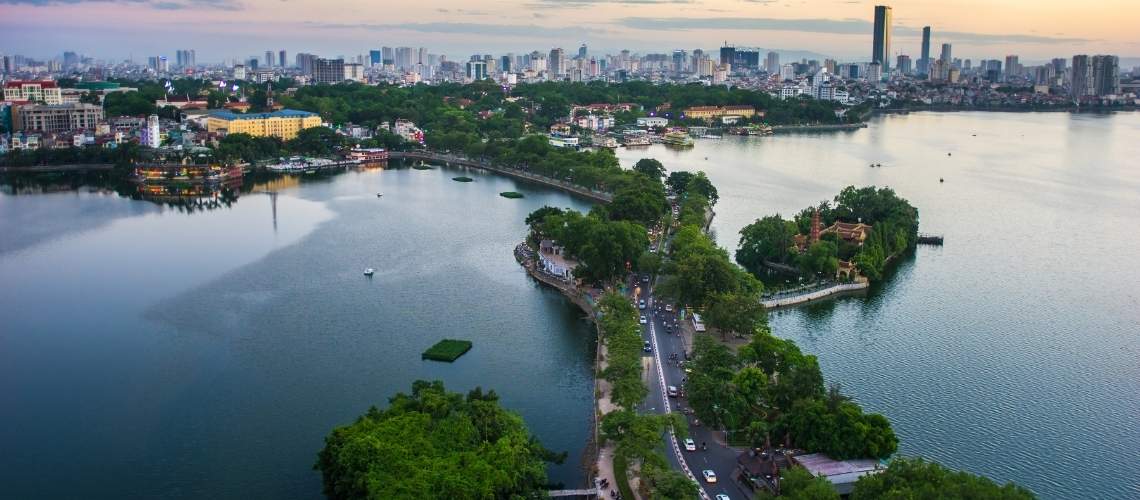The imposition of tariffs by the U.S. on Vietnamese products, or more specifically, trade measures taken by the U.S. against Vietnam, can affect various sectors of the economy, including the real estate market in Hanoi. To understand this issue in depth, we need to analyze how trade factors influence the economy and, from there, assess the impact on the real estate market.
1. Direct Impact from Tariffs and Trade Relations
If the U.S. imposes higher tariffs on products exported from Vietnam, particularly in key industries such as textiles, footwear, and electronics, this could have several negative effects on the Vietnamese economy. These impacts may include:
Decline in Exports: When tariffs on Vietnamese exports to the U.S. increase, the value of these exports will decrease, leading to lower export revenue. Vietnamese companies may struggle to maintain production, resulting in reduced profits, which could lead to investment cuts or even layoffs.
Imbalance in Industry: Industries primarily affected by these tariffs, such as textiles and electronics, might not have a stable income source. This could reduce the income of workers and slow down the economy.
2. Impact on the Real Estate Market
Under the influence of a weakened economy, the real estate market will also be affected in various ways:
Reduced Demand for Consumption and Investment: If the economy weakens due to tariff impacts, citizens will tend to save more rather than spend or invest. Therefore, demand for real estate, especially housing and new real estate projects, will decrease.
Increased Interest Rates: To cope with the negative impacts of tariffs and the slowing economy, the State Bank may raise interest rates to maintain macroeconomic stability. When interest rates rise, citizens will face more difficulty in securing loans for purchasing homes, which affects the real estate market, especially in the middle and high-end housing segments.
Oversupply Situation: If real estate projects are under construction or in the planning stage, economic factors might make it difficult for developers to sell properties. This could lead to oversupply and lower property prices.
3. Indirect Impact from Investor Sentiment
Uncertainty About the Future: The imposition of tariffs by the U.S. on Vietnam could increase uncertainty in the economy. This uncertainty could extend to both domestic and foreign investors. Foreign investors may reduce their investments in Vietnam, while domestic investors may be more cautious when deciding to participate in real estate projects.
Decline in Foreign Direct Investment (FDI): If trade relations between the U.S. and Vietnam become strained, some foreign investors, particularly from the U.S., may withdraw or reduce their investments in Vietnam. This could affect the demand for commercial real estate, office space, and infrastructure projects.
4. Potential Positive Impacts
However, not all impacts are negative. Some factors might present opportunities for the Hanoi real estate market:
Investment Shift: If the U.S. imposes tariffs on Chinese goods or other countries, companies might seek to shift their production activities to countries with lower costs, including Vietnam. This could generate a large demand for industrial real estate and housing for foreign experts and workers in industrial zones.
Strategic Location Advantage: Hanoi is the capital and economic center of Vietnam, so if the country's economy remains stable, demand for real estate here could remain relatively strong. High-end real estate, serviced apartments, and large infrastructure projects may continue to develop.
Conclusion
In conclusion, U.S. tariffs on Vietnam may negatively impact Hanoi's real estate market through reduced demand for consumption and investment, higher interest rates, and economic uncertainty. However, if Vietnam's economy can maintain stability or shift towards developing alternative industries, certain real estate segments, especially industrial real estate and large infrastructure projects, could still remain strong or even grow.







 Compare (0)
Compare (0)